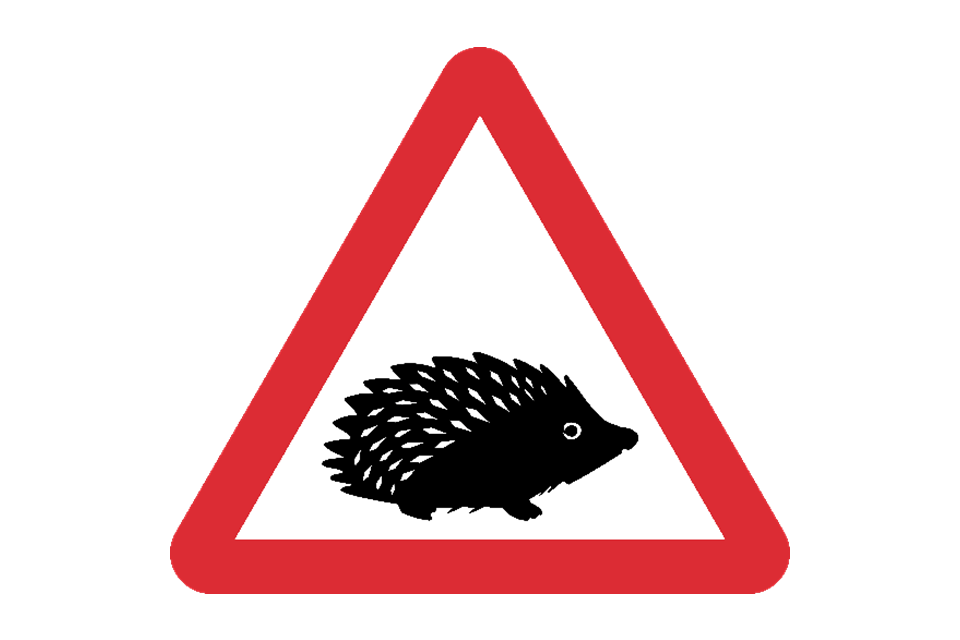New warning signs are to be introduced to help drivers on rural roads identify wildlife hotspots and be better protected from hazards.
The Department for Transport (DfT) announced the changes today (Friday, December 22), stating that hedgehogs and other small animals will be better protected on English roads when local authorities put up wildlife warning signs.
The current hedgehog sign will be updated following feedback from the sector to make it clearer for drivers, the department said.
Alongside this, rules around the small wildlife warning signs will be relaxed to make it easier for local authorities to put up small wildlife warning signs.

DfT said it will ensure local authorities are able to place small wild animal warning signs where they are needed most, rather than having to apply to the department on a case-by-case basis.
Transport secretary, Mark Harper, visited the Tigglywinkles Wildlife Hospital to mark the changes:
“It was an absolute pleasure to see behind the scenes at the famous Tiggywinkles Wildlife Hospital, where I witnessed the incredible work they do to heal a wide range of wildlife.
“These common-sense changes will lead to more small animal signs across the country, cutting down on bureaucracy to help protect both drivers and small animals, improving safety on our roads and making sure fewer casualties are checked into wildlife hospitals like these.”
Wildlife and rural roads
The small animal warning sign depicts a hedgehog and was first introduced in 2019.
As well as cutting the restrictions preventing them from being placed, the government has also refreshed the design by adding white quills to the hedgehog’s back.
This will improve clarity and make it more visible from a distance for all road users, DfT said.
The department said the changes will also help protect vital crossing routes for hedgehogs and other small animals, particularly on rural roads.
Hedgehog numbers have dropped by between 30% and 75% in rural areas since the millennium, with traffic a major factor in the decline, DfT said.
Chief executive at Tigglywinkles Wildlife Hospital, Colin Stocker, said:
“A lot of the 14,000 animals admitted to us every year come in due to road traffic accidents and making motorists more aware of their presence, and encouraging them to be more cautious is a great step towards helping British wildlife.
“We hope this policy change will result in more signage that, in turn, will remind motorists to be mindful of British wildlife when out and about.”

